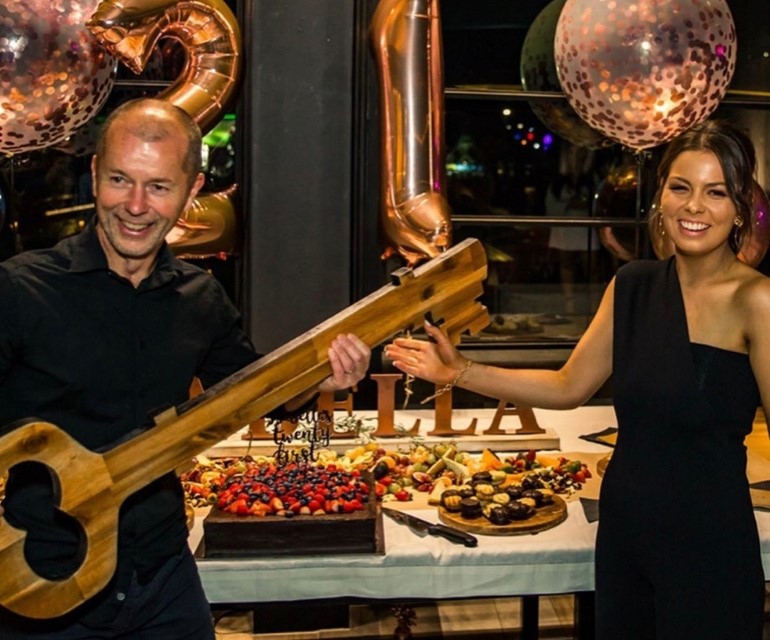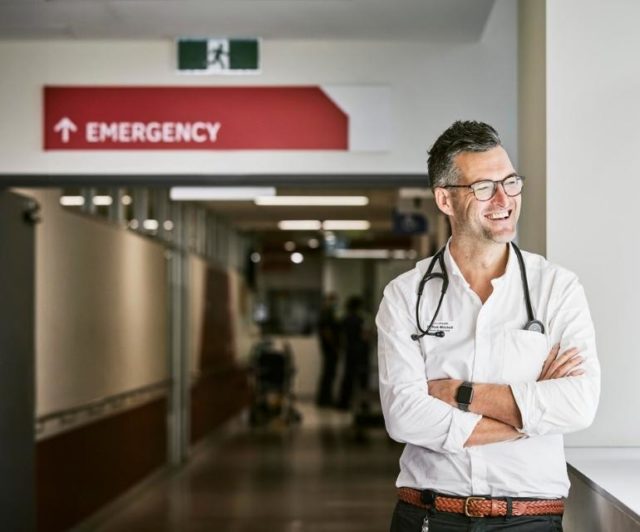From struggling to breathe to summiting a mountain

Cameron Dabb already knew a lot about putting his body through physical adversity.
A veteran of three Half-Ironmans and two Full Ironmans – comprising a 3.8km swim, 180km bike ride and 42.2km run – his passion for challenging himself was clear for all to see.
But all his triathlon efforts could not prepare him for what was to come next.
On October 22 2017, Cameron was on one of his regular long Sunday bike rides. Ten minutes from home, a car hit his back wheel and he went flying onto the bonnet, smashing the windscreen and rebounded back onto the road, crushing his throat.
Rushed to The Alfred, surgeons had no choice but to begin operating on him straight out of the trauma lift.
“As we later found out, he was taking his last breaths and there just wasn’t enough time to wait,” his daughter, Isabella, said. “The following hours felt like days and the days felt like years. I will never forget that night. Something I would never wish upon my worst enemy, it felt like we were living in a horror film.
“Twenty-four hours later I got to see my dad in ICU, bruised, swollen and only able to communicate via hand gestures. I was distraught but comforted when I saw him and the incredible care he was receiving from our heroes, the team that makes up The Alfred.”
Two of the doctors who saved Cameron’s life, Matthew Taylor and David Rowe, said it was rare to treat patients like Cameron at the hospital – because they were often fatal to patients before medical care reaches them or they make it to hospital.
“It was a fast-changing situation and Cameron’s condition was very serious. Being fit and healthy before the accident will have helped him but the extent of his injuries meant breathing was close to impossible and it doesn’t matter how fit you are, if you can’t breathe you won’t survive,” Matthew said.
After three weeks, Cameron returned home. But while the worst of the physical ordeal was over, the mental challenge was just beginning.
“Obviously surviving the first 24 hours following a trauma is critical. However … it is the days, weeks and months following a trauma that can be the hardest to endure,” David said.
Isabella said her dad would have to live for the rest of his life with the injuries sustained that night. “His voice is much softer and he struggles to talk sometimes. His jaw causes him a lot of pain and he has lost his sense of smell and taste,” she said.
“Everyday can be a challenge for Dad but he doesn’t show it. He is truly my hero. An inspiration to many and the hardest working, most determined, generous, strongest person I know. Without fail he makes us laugh every day and we are so beyond lucky to call him our Dad.”
It was a long path back but, two years to the day after his discharge from The Alfred ICU, Cameron was back doing what he loved – in this case a cycling challenge in Taiwan which is described as one of the most difficult cycling races in the world. He completed the 105km course, with more than 11,000 feet of climbing, in about six-and-a-half hours. A true miracle.



